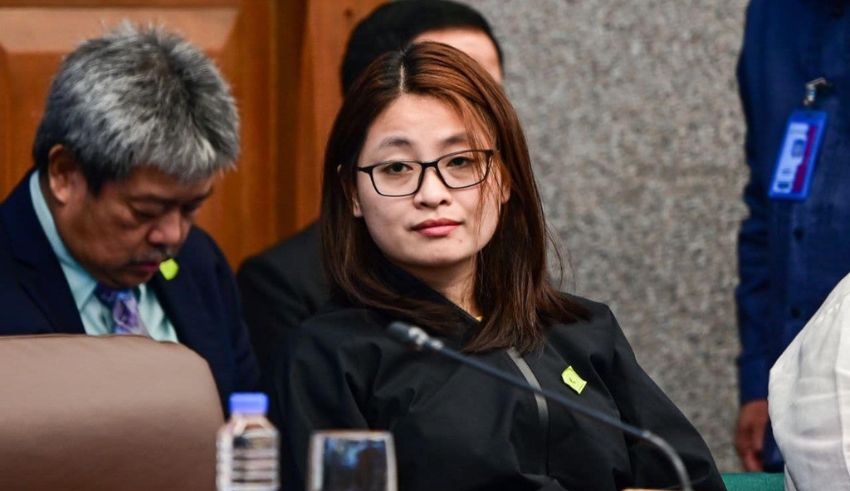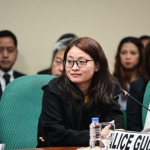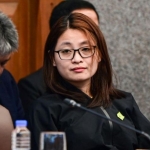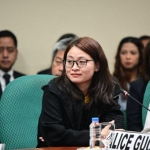
Beginning in May, the congressional investigations on former Bamban, Tarlac mayor Alice Guo concentrated mostly on her possible ties to offshore gaming operations connected to notable criminal behavior. But among all these investigations, one of the most shocking theories surfaced: Alice Guo might be a Chinese spy. Legislators and the general people began to question the likelihood of foreign espionage entering their nation’s political landscape, which sparked debates.
This claim begged major concerns at the beginning of the investigations; nevertheless, the espionage notion seemed to gain front stage when the focus of the investigation turned to the dubious behavior of gaming centers and Guo’s unlawful fleeing from the Philippines. Legislators appeared to veer from this line of inquiry, focusing instead on the specifics about Guo’s claimed illicit activity and the functioning of offshore gaming centers.
Al Jazeera Documentary Notes Spy Allegations
Though the issue of espionage is getting less of focus, a recent Al Jazeera report casts questions on Guo’s purportedly intimate ties to Chinese security agencies. Particularly because of the inflammatory assertions in the video, it became the focal point of debate during a Friday House quad committee meeting. The movie revolved on She Zhijiang, a well-known businessman imprisoned in Thailand now battling deportation to China. Claiming to be a former China Ministry of State Security agent, Zhijiang directly linked Alice Guo to his discoveries.
Zhijiang sent shockingly precise charges. Claiming to be an agent for China’s Ministry of State Security, he claimed to be working with Alice Guo Hua, her Chinese name. Zhijiang asserted that Guo’s political ascent more suited an espionage goal and that both he and Guo had devoted their life to serving the government. Zhijiang also threatened Guo that should she neglect to expose “the truth” to the people, the very authorities she had earlier served would “eliminate” her. His assertions created a terrible picture of political subversion, espionage, and the great risks Guo currently runs.
Denial and powerful response by Alice Guo
Guo strongly denied these new charges. She was especially annoyed by the growth of the espionage charges during the hearing. She angrily denied the claims she was a Chinese spy, calling them “unfair” and noting that investigations had already addressed them. For Guo, the several claims of spy operations exposed an unfair attack on her political career and reputation. Emphasizing categorically that she had no involvement in espionage, she voiced her disgust with the way the investigation had evolved into what she considered as unwarranted charges.
Especially remarkable was Guo’s emotional reaction when she exclaimed, “Hindi ako spy!” (I am not a spy!), so emphasizing the personal impact these assertions have had on her prior to the committee. Guo reinforced her case even more by suggesting legal action against She Zhijiang based on her allegation of slander over his allegations. Guo’s good stance underlined the gravity with which she sees the charges, and her quick answer clearly shows her will to clear her identity.
Clarifying Political Reactions and Allegations of Espionage
Interview with Senator Sherwin Gatchalian revealed even more the complexity of espionage accusations, especially involving political leaders. Speaking to ANC on Monday, Gatchalian urged for a more complex conversation of the topic and advised that the matter should be answered in a closed-door session with the national military and intelligence services. Gatchalian contends that as the seriousness of the issue cannot be emphasized, the government has to decide whether there has been any clear compromise of national security.
The Al Jazeera video’s contents for Gatchalian suggested a sea change. He claimed he had never seen “concrete information” from an international news source connecting Guo to the Chinese government and implying she might be a spy. This further disclosure sparked questions over the possible extent of Guo’s political influence and the hazards connected with her continued involvement in the political scene of the nation.
None of the informants will confess to be such. Indeed, they would be denying right up until the very last,” Gatchalian said, noting that espionage agents inevitably disguise their activity. Should the material be accurate, he continued, this would be an unparalleled scenario when a suspected spy not only entered the nation but also actively participated in an election and occupied political office. Should Guo prove to be a spy, the likelihood that she would have managed her political ascent undetectably worried Gatchalian, who underlined the significance of authorities giving these charges great weight.
Keep Reading
Espionage: Why Counterintelligence Is Important
Gatchalian also spoke on the broader general background of espionage, pointing out that monitoring and foreign penetration are common experiences of large nations all over. Concerned about perhaps similar activities occurring in the Philippines as well, the legislator recommended increased caution in reducing global spying efforts. He underlined especially the need of improving the defensive systems of the country in terms of counterintelligence operations to avoid foreign players from dictating its political and security systems.
Reflecting Gatchalian’s views, Jonathan Malaya, assistant director general of the National Security Council, reassured the public that the Philippine government has “effective” counterintelligence systems in place. According to Malaya, the government maintains vigorous identification and disarming of foreign operatives presumably working within the nation. However, Gatchalian underlined the need of intelligence services being adequately funded and equipped with modern technologies to properly resist espionage given the accusations against Guo.
“This is a wake-up call for us, especially for the government, to make sure we are capacitated,” Gatchalian urged the government to invest in its intelligence apparatus to ensure foreign players do not compromise national security. The case involving Guo has underlined the need of giving likely espionage concerns more attention in terms of preventive actions and investigative capacity.
Recent claims of espionage around Alice Guo have spurred a more general conversation on national security, foreign influence, and political system integrity of the nation. Still crucial for the continuous study is the issue of whether Guo’s concerns will hold true under more thorough investigation. The assertions in the documentary have made the matter more relevant and increased the stakes for Guo as well as for the broader national security machinery.
The result of the inquiry will most likely have far-reaching effects as lawmakers, defense officials, and intelligence organizations consider the likely effects of these allegations. Whether Guo turns out to be a spy or not, the problem emphasizes the requirement of alertness in preserving national security and guaranteeing the nation is ready to manage problems of espionage and international engagement. As the stakes keep rising, the developing events will be under great examination both home and abroad.




























